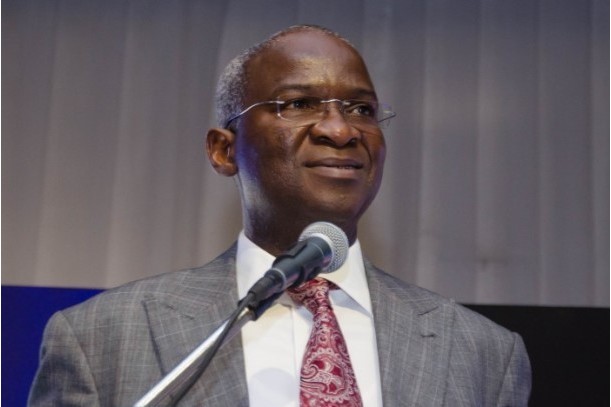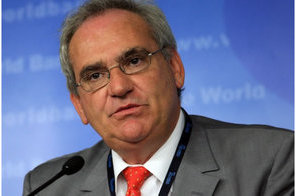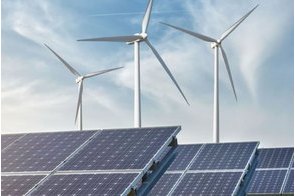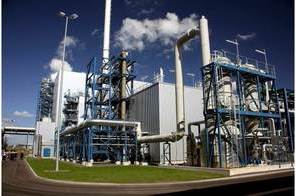Opportunities for off-grid solutions in the Nigerian power sector

Summary
Nigeria can only achieve the desired increase in generation with a balanced blend of on-grid and off-grid power projects.
Introduction
The Nigerian population is above one hundred and eighty three million (www.worldometers.info), and about 55% of the population have no access to grid-connected electricity (Nigeria Power Baseline Report -nesistats.org). Access to electricity in the rural areas is about 35% and about 55% in the urban areas.
It has been estimated that developing economies would need about 1,000MW per million people to meet their electricity demand. Invariably, Nigeria would require more than 160,000MW to achieve the desired electricity generation capacity. Nigeria projects that by the year 2020, the country's generation capacity would be in excess of 40GW (40,000MW), and the energy mix will constitute 69% thermal generation; 17% hydro; 10% coal; and about 4% of renewable. (www.nipc.gov.ng)
The on-grid challenge
On-grid generation refers to a system of power generation evacuated through the national grid to off-takers which may be the Bulk Trader, (Nigerian Bulk Electricity Trading Company Plc.) who through vesting contracts supplies the power to Distribution Companies; or directly to Eligible Customers, as may be declared by the Minister of Power. (The title of the Minister of Power in Nigeria is “Minister of Power, Works and Housing.”)
Presently, the installed power generation capacity in Nigeria is 12,522MW; out of which 10,592MW is gas fired; and 1,930MW is from hydro. It is worth noting that out of the total installed capacity, the maximum peak generation by power plants in December, 2015 was 4,810MW.
Most of the power received by Nigerian electricity consumers is on-grid power supplied by the Distribution Companies (DISCOs). On-grid power generation has over the years had its constraints, some of which are identified below:
a. Unavailability of gas: About 85% of installed generation capacity is thermal. Although Nigeria has the world's 9th largest gas reserves measuring 180,105Bscf (Billion standard cubic feet); the gas production is significantly low. Statistics reveal that as at 2014, the total gas produced was 8.9Bscfd, and less than 10% was supplied to the domestic power sector for generation. Gas constraints is said to reduce the power generation capacity by 1,995MW, and reasons for this include uneconomical gas prices; gas pipeline vandalism; insufficient gas infrastructure; and uncertainty in regulation and fiscal policy for gas, amongst others.
b. Inadequate transmission infrastructure: The existing transmission system is only capable of delivering about 5,300MW (out of the total installed capacity of 12,522MW) of power to DISCO trading points. This is as a result of Nigeria's current weak transmission infrastructure which is majorly radial, which means that it's a single path of transmission with a power source at one end. This implies that any fault in the path could potentially lead to a collapse of the transmission network. The issue with transmission has been estimated to reduce the power generation capacity by a total of about 263MW. Although, the Transmission Company of Nigeria plans to upgrade the transmission system to a capacity of 11,000MW by 2020 (subject to adequate funding and completion of projects planned for implementation); the transmission infrastructure in its current state, without an upgrade and improved technology, is unable to accommodate the estimated increase in generation by 2020.
c. Liquidity issues in the Nigerian Electricity Supply Industry (NESI): The NESI has since the handover of the PHCN Generation Companies (GENCOs) and DISCOs in November, 2013, been faced with liquidity issues resulting from non-cost reflective tariffs. The DISCOs, being the cash collectors in the power value chain were unable to collect sufficient revenue to pay their power bills which should sustain the rest of the value chain (GENCOs, gas suppliers and service providers). As a result, all the market participants in the power value chain cannot get their revenues in full, and this has led to a cash crunch in the market. This is clearly a disincentive to investment in additional generation or capital expenditure for the DISCOs. The current cash crunch is likely to linger until February 2016, when the newly reviewed Multi Year Tariff Order, 2015 becomes effective. Even then, the liquidity issues should not be expected to fall away overnight, but should ease off over the next two years as the Discos become more credit worthy.
d. Nigerian Integrated Power Project (NIPP) Privatisation: Closely related to the liquidity issues highlighted above are the issues affecting the completion of the NIPP Privatisation. The privatization process of NIPP Power Plants, which have a capacity to add up to 4,775MW to the grid, has been fraught with issues including non-availability of gas; non-completion of some of the NIPP plants; and inadequate gas and transmission infrastructure. More importantly, the current liquidity issues in the NESI, and the lack of government credit enhancements in the present circumstances, have not given potential investors the confidence to invest in the acquisition of the assets. This is especially complicated by the fact that most Nigerian Banks have a substantial amount of exposure to the power sector from the PHCN privatization, and the alternative is international funding which would be subject to more scrutiny by international banks.
Given the above, it is imperative that whilst the issues are being resolved, we should look at viable solutions for increasing generation that would hopefully be somewhat isolated from some of the issues raised above.
The off-grid solution
Off-grid generation can be described as stand-alone power generation systems or mini-grids, which typically provide smaller communities (e.g. rural areas; industrial clusters or residential estates) with electricity through independent electricity distribution network systems.
The total off-grid electricity generation capacity as approved by the Nigerian Electricity Regulatory Commission (NERC) is still less than 500MW (http://www.punchng.com November 6, 2015). Considering Nigeria's plans to increase generation capacity in the coming years and the low level of access to electricity in the rural areas; there is need for significant investments in off-grid generation.
As an example, Bangladesh is one of the world's most densely populated countries with a population of over one hundred and fifty eight million and has made a success story from implementing off-grid power solutions. The government of Bangladesh initiated the Solar Home System (SHS) based rural electrification programme in 2003 through Infrastructure Development Company Limited under a micro-credit scheme. In 2002, only 7,000 Bangladeshi households used solar panels, but as of today, the programme has installed about 2 million SHS in the country. Also, since 2010, about four mini-grids have been installed, and nine others are to be installed in off-grid locations of Bangladesh.
Prospects for off-grid solutions in Nigeria
a. Potential to grow industrial clusters and small cottage industries: Most industrial clusters and some small cottage industries require uninterrupted power supply to function optimally. The power supplied could be generated through fully off-grid power plants or embedded within distribution networks. This could potentially transform the economy of these areas; increase profitability for the existing businesses; create jobs; and breed a crop of customers who are willing to pay for electricity supplied.
Steps are already being taken in this direction as the final report on a proposed framework for micro-grid power generation for industrial clusters in Nigeria is soon to be submitted to the Minister for Power, Works and Housing by NERC. The Manufacturers Association of Nigeria has also identified about 28 clusters for mini-grid modular plants ranging from 5 to 50MW in areas including Ogun and Lagos States. (www.thisdaylive.com, December 22, 2015). The mini-grids require a lot of capital investment of between $40 and $400million.
b. Opportunity to expand and refurbish distribution networks of the DISCOs: In line with the NERC Regulation for Independent Electricity Distribution Networks, 2012 (IEDN Regulations), off-grid generation plants require Independent Electricity Distribution Networks (IEDNs) to supply electricity to end users, save for eligible customers upon declaration by the Minister of Power, who can be supplied to directly. This creates opportunities for investors who may wish to create off-grid projects with their own IEDN. This could potentially be a win-win situation for DISCOs who could either collaborate with developers to expand or refurbish their network; add to their number of paying customers; or acquire the developer assets given the right regulatory framework.
c. Opportunity to collaborate with State Governments: Many state governments are looking to partner with investors to develop more off-grid projects than on-grid projects. This may be to avoid regulatory constraints (as a result of the fact that most laws, regulations, and agencies for on-grid projects are controlled by the federal government) which state governments may experience when executing on-grid projects. It must, however, be noted that whilst these constraints may be minimal with off-grid projects, they cannot be totally avoided, as NERC, being the regulator of the power sector still has the power to issue off-grid licences and generally regulate the power sector. Notably, the Lagos State Government has initiated some Independent Power Projects (IPPs) to provide electricity to its own establishments, including schools, ministries, hospitals, and courts. As at July, 2015, the state had commissioned five IPPs with an accumulated capacity of 47.5MW.
d. Access to other fuel alternatives: Most of the power plants in Nigeria are gas fired thermal plants. Given the current constraints with gas, off-grid power plants are able to take advantage of diverse and hybrid fuel sources like renewables (solar, wind, biomass) and because the power is not generated on-grid, transmission constraints with renewables are eliminated. This would be particularly more useful in areas where there is limited gas supply, e.g. the northern part of Nigeria where solar, wind, and hydro sources are prevalent.
e. Considerable insulation from the issues within the NESI: Given Nigeria's considerable power requirements, off-grid solutions within a cluster of customers willing and able to pay present a viable investment opportunity for power developers. This is particularly because their investment would be insulated from the current liquidity issues in the NESI.
f. Opportunity for rural electrification: Off-grid solutions are also useful in Nigeria in view of some topographical or geographical challenges in the rural areas which have made it uneconomical to extend the grid to such areas. Rural electrification in Nigeria is currently in a weak and dilapidated state; hence there is a dire need for investments. Recently, bids were requested by the Rural Electrification Agency (REA) for several rural electrification projects across Nigeria, and were to be submitted to the Agency by 27th November, 2015. It is expected that many rural electrification projects will spring up this year. A priority for the REA should be the sustainable development of rural mini-grids that are targeted towards the economic development of these rural communities so that the communities can learn the culture of paying for electricity.
Challenges to off-grid solutions
a. Regulatory framework: Whilst there is the IEDN Regulations and a draft Regulation under consideration for Independent Electricity Transmission Network; there is still a considerable amount of uncertainty with respect to the regulations as it relates to off-grid projects. Hence, a lot of discretion remains with NERC. Areas of uncertainty in the regulations include the issue of whether isolated urban IEDNs can exist within a DISCOs franchise area; how to deal with excess power produced by either captive or off-grid generators; applicability of the tariff methodology to off-grid generators; and applicability of the procurement rules to off-grid generators, in view of the contradiction between the IEDN Regulations, 2012 and the NERC Regulation for procurement of Generation Capacity, 2014. (An Isolated Off-Grid Urban IEDN means an IEDN in an urban area which is not connected to a distribution network that is connected to the transmission system operated by the system operation licensee (Chapter I, Section 3 of the NERC Regulation for IEDN, 2012)
b. Resistance or objections from Existing Monopolies: There is a likelihood of objections to the grant of off-grid licences from DISCOs) over the areas where their DISCO licences currently cover. NERC also maintains a balance to ensure that the DISCO's market share will not be eroded by the grant of an off-grid license.
c. Access to gas: As mentioned above, where gas is the main fuel source, there may be issues with gas supply.
d. Requirement for licensing: This is an issue for captive power plants who only have permits to operate, and not licences, when they have stranded power. The captive power plants cannot sell power to willing buyers with their permits, but must obtain embedded generation licence(s) to sell power.
e. Technology gap: Due to the fact that many of the off-grid equipment are sophisticated, Nigerians need to develop the adequate technological know-how. It is common to find that many solar PVs (photovoltaic) installed pack up shortly after installation. Also, renewables such as wind and biomass have not been fully explored in Nigeria, and would require adequate know-how for Nigerians to operate.
f. Other considerations: The start-up of off-grid power plants is usually capital intensive, and considerations include putting together the appropriate technical, financial and legal team for the project; ascertaining adequate costing for the project; undertaking viable feasibility studies for the project; adequate funding for the project; obtaining clear title for the project land, where applicable; available source of fuel and water; and identifying proposed off-takers for the project, amongst others.
Recommendations going forward
a. There is a need to create an investor friendly environment for off-grid solutions, which will allow for government support, tax incentives and reliefs to encourage investments in the power sector. Examples of efforts in this regard include the National Renewable Energy and Energy Efficiency Policy for the Electricity Sector newly approved by the Federal Government; and the Renewable Energy Master Plan developed for Nigeria.
b. It is important for Nigeria to intensify efforts in seeking funding support from the World Bank, Development Finance Institutions and NGOs for the purpose of electrifying Nigeria. The Bangladesh off-grid success story is was possible through the support of these institutions.
c. The off-grid concept should be decentralised among the federal, state and local governments. This will allow for faster implementation of off-grid projects through the actualisation of long-term plans.
d. There should be certainty in the regulations for off-grid solutions. There should also be clarity with respect to the criteria for generally licensing off-grid projects in urban and industrial clusters.
e. NERC should also create an avenue to enable easier licensing for captive permit holders and off-grid licensees who have excess or stranded power, and wish to supply to the DISCOs.
f. NERC should implement a workable compensation formula to create a win-win situation for investors and a DISCO, when such DISCO desires to take over their franchise areas which was operated by an off-grid licensee. This way, the off-grid operator would be able to recover, at the minimum, the cost of its investment; and the DISCOs would in turn inherit a crop of customers who have become accustomed to paying their bills. This will invariably encourage power developers to invest in areas within DISCOs' franchise areas (which are either poorly operated or not operated at all).
g. Human capacity development is necessary to achieve adequate technological know-how for off-grid projects.
h. The REA needs to create a clear and sustainable strategy for development and funding of rural electrification. Where the projects are sustainable, they would be eligible for takeover by the DISCOs or even by power developers.
Conclusion
Nigeria can only achieve the desired increase in generation with a balanced blend of on-grid and off-grid power projects. A balanced approach could potentially lead to an accelerated journey to full electrification in Nigeria. This would in turn result in a significant economic boost of the Nigerian economy, as power has been proven to be an enabler of other sectors of the economy.
Detail Commercial Solicitors is distinct as Nigeria's first commercial solicitor firm to specialize exclusively in non-courtroom practice. Based in Lagos, Nigeria's business capital, DETAIL is totally committed to its clients' business objectives and reputed for dealing with the minutiae.
Related
-
IFC, FMO invest in Mobisol to deliver solar energy in East Africa
IFC and FMO invested €14.6 million in Mobisol to deliver pay-as-you-go solar energy services to off-grid communities ...
-
Renewable energy increases competitiveness despite cost inflation
IRENA’s report concludes that expected high fossil fuel prices will cement the structural shift that has seen ...
-
Friends of the Earth urges Japan to end fossil fuel financing
Japan is financing liquefied natural gas projects in different parts of the world.










